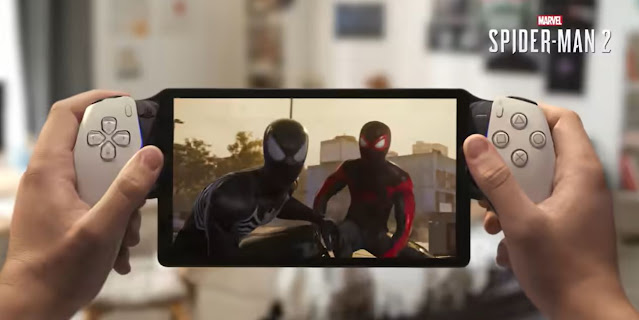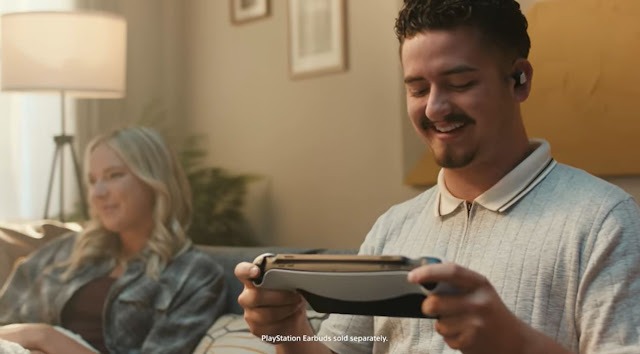PlayStation Portal: Review
Sony's latest piece of hardware has made some baffling choices which could limit its wider appeal.
But when it fires on all cylinders, the PlayStation Portal is a reminder of why Sony's gaming environment is one of the best.
While many will be hoping for a standalone gaming device a la 2011's PlayStation Vita, the main thing to remember with the Portal is that it is simply a portal for allowing you to stream your PlayStation games on a handheld via Remote Play and a strong and stable WiFi connection.
As such, the best connection is offered at home and will depend largely on how powerful your WiFi is. The stronger the connection, the better the experience, and the less chance there is of the unit's connection with your PlayStation dropping out.It's not a hefty piece of kit in terms of weight, and while it is probably about the width of 1 and a half DualSense controllers, it lacks the bulkiness of the controllers. Yet it retains what works best about those controllers - the adaptive triggers and the haptic feedback - so it really is about the power of the latest generation of the PlayStation in your hands.
It also cannot be overstated just how gorgeous the LCD screen is too for such a small piece of kit. At around 8 inches and with 1080 resolution, the screen pops with vibrancy as your favourite games play out. There are times the graphics' resolution falters, but that's usually due to the stability of the connection or very occasionally by what the game you're playing itself is doing.
For example, in a game like space shooter Resogun where hordes of ships can overwhelm you, there can be a noticeable lag that impacts on a slight delay in your response time. But for other less graphically heavy games, the screen copes with what's going on. Playing Spider-Man 2 on the Portal is flawless, as you swing from one skyblock to the next, the handheld easily copes.
Less impressive is the need to rely on being near your PlayStation 5 for an optimal experience.
That means that if you're a one TV house, there will be no more fighting over who is getting the big screen, as all parties can end up being happy with doing their own thing. But if you have pockets of a house where the WiFi is patchy, or you're out and about with average WiFi hotspots, it's more of a frustration to get the Portal to connect and stay connected to the home console to carry on playing.
Similarly, a lack of Bluetooth means Sony is ensuring gamers stay in their own environment, with Pulse Wireless headset and its Pulse Explore Earbuds being the only real options for audio connection outside the use of a wired jack. It's disappointing and perhaps frustrating that's gamers' only choices, but with both those audio options offering superlative audio quality that capitalises on Sony's offerings, perhaps it makes good business sense but poor consumer choice.
A USB-C offers around six hours of charge, so there is plenty of power in the Portal to keep you on the go, even with high brightness selected on the screen and a reasonable audio output used.
Ultimately, while the PlayStation Portal can really one do one thing and may frustrate those searching for a standalone handheld device that serves as a companion piece to the next generation console, when it works perfectly, it's a reminder of just how good Sony's native environment can be.

.jpeg)

.png)
.tif)


%20&%20Edith%20Poor%20(Lizzie%20Moyle)_%C2%A9BBCS%20&%20Bunya%20Entertainment.jpg)
No comments:
Post a Comment